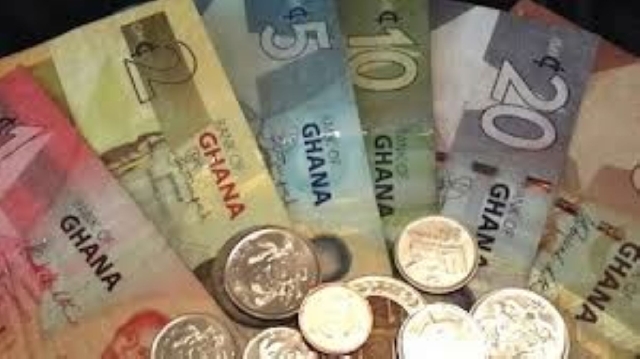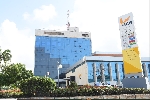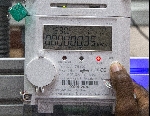Cedi ends Q1-20 1.77% up against dollar amid COVID-19
 cedi
cedi
The cedi ended the first quarter of 2020 with an appreciation of about 1.77% in value to the US dollar.
The performance of the cedi was attributed largely to the Bank of Ghana’s Forward Forex Auction and the COVID-19 pandemic that has resulted in low imports within quarter one of this year.
However, the local currency came under pressure in the last three weeks to the end of quarter one, following some liquidation of portfolio investments by some foreign investors amid growing uncertainty about the coronavirus pandemic.
Finance Minister Ken Ofori-Atta said on Monday, 30 March 2020 that there had been some disinvestments of local bonds by about 25% of foreign investors.
As of Wednesday, 18 March 2020, the local currency had appreciated by 3.47% to the US dollar, 13.38% to the British pound and 5.81% to the euro.
But has since lost 1.70% in value to the American ‘green buck’.
At the forex bureau, the cedi is going for about GHS5.75 to one US dollar but GHS5.49 to one US dollar at the interbank market.
In the month of February 2020, the cedi recorded an appreciation of about 5.75% to the US dollar on the interbank market.
Outlook
The ongoing 14-day partial lockdown which began on 30 March 2020 has triggered a reduction in trading activity in the currency market.
As a result of the reduced trading, the cedi has been broadly stable in the past two trading days. This inactivity could, therefore, help the local currency during the 14-day lockdown.
Some analysts say overall, the Ghana cedi is still vulnerable to downside risks emanating from sustained selloffs across Emerging Markets and Developing Economies (EMDEs), increased liquidity to mitigate the impact of COVID-19 on demand and general economic activity. Others are lower prices for soft commodities and crude oil, which weighs on export receipts and slowdown in aggregate demand in the export markets.
Going forward, the dividend payment season in the second quarter of 2020 could pose further risks but the repatriation is expected to be relatively reduced or moderate.
For instance, the Bank of Ghana has issued a directive against payment of dividends by banks unless it is satisfied with the way the banks deployed the liquidity support they received from the central bank.
This potential containment of dividend payment and outflow, the analysts believe, should help limit the pressure.
Also, the price of gold will continue to benefit from safe-haven demand amidst the global uncertainty, aiding export receipts.
Source: classfmonline.com
Trending Business

GCB faces customer backlash over system update amid end-of-month salary payments
10:34
Sunon Asogli 560MW Power Plant resumes operation after Bawumia-led release of 'emergency funding'
01:22
Dec. 7 polls: Aggrieved Menzgold customers threaten to vote out NPP if GHS200m bailout isn't granted
14:42
Not all metres being updated – ECG clarifies
00:34
Ashanti Region pig farmers raise pork prices amid soaring production costs
02:58
Jospong Group, Uasin Gishu County signs pact to boost sanitation services in Kenya
00:40
FDA defends best-before-date extension on 22,000 bags of rice for SHS students
09:40
Exchange rate cause of escalating petroleum prices -NPA
14:39
AAC pledges sustainable agriculture practices and investments across Africa
12:46
'The Bank Square': BoG's new HQ will foster innovation, excellence in service – Pres. Akufo-Addo
22:54




